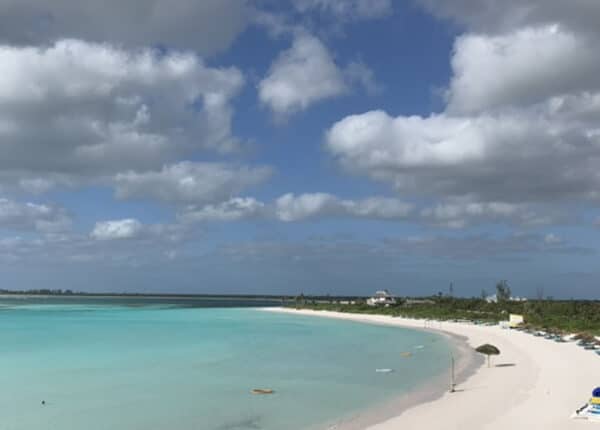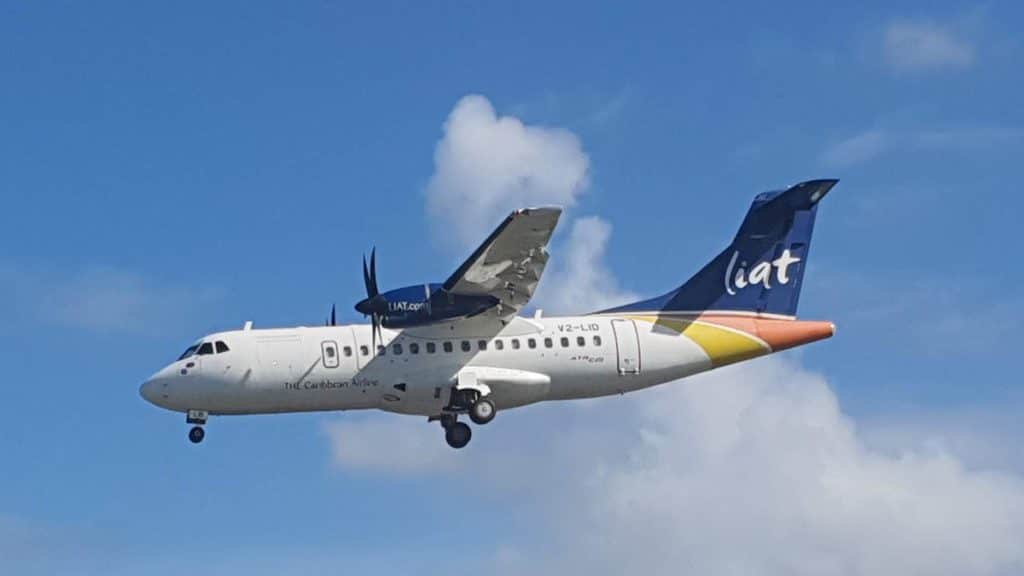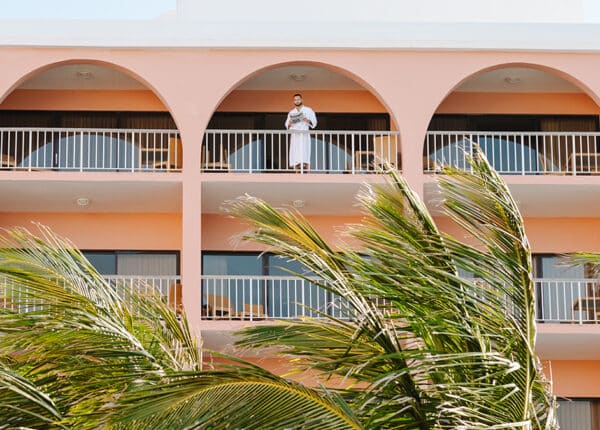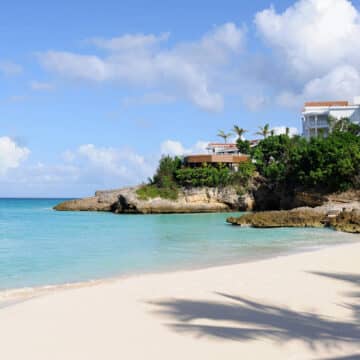It’s been an issue in the Caribbean for years: air taxes.
But now, the tide seems to be turning, with the recent news that the Caribbean Community would be launching a review of taxes and fees on airline tickets in the region.
To learn more about the issue, and ways to solve it, Caribbean Journal caught up with Vincent Vanderpool-Wallace, former Tourism Minister of The Bahamas, long one of the region’s leading tourism experts and principal partner of Bedford Baker Group.
First of all, you believe that some congratulations are in order for CARICOM undertaking to review taxes and fees on airline tickets.
Yes, congratulations are owed to the Heads of Government of CARICOM and, in particular, to the current Chairman for advancing the proposal to review the taxes and fees applied to airline ticket for intra-Caribbean travel and for the endorsement of CARICOM members to proceed. We also recognize the support from the Prime Minister of The Bahamas who heads the CARICOM Sub-Committee on Tourism and his support from the Caribbean Tourism Organization and the Caribbean Hotel & Tourism Association in moving this particular matter forward.
The case for reviewing taxes and fees on airline tickets has been made for more than two decades and it may well have taken the pandemic for governments of the world’s most tourism-dependent region to fully grasp how airlines taxes and fees act, counterintuitively, as deterrents to maximizing tax income and employment from tourism.
What do you mean by taxes and fees on airline tickets acting “counterintuitively” as deterrents to maximizing tax income and employment from tourism?
It is counterintuitive because some people find it difficult to understand how we can maximize tourism tax income by reducing some of the very taxes and fees that we are seeking to maximize. To quote Satchel Paige and others, “Often, it ain’t so much the things you don’t know that hurt you, it’s the things you know that just ain’t so”.
Many have always “known” that direct tourism taxes such as guest night taxes and taxes and fees on airline tickets and departure taxes are the sum total of taxes and fees derived from tourism. That misperception is derived from the fact that most government revenue accounting systems have line items that track only those direct tourism taxes. So, whenever governments seek to increase income from tourism, they “know” that they have to raise some or all of those direct taxes, not lower them. That has been our history.
But EVERY study of tourism taxes that I have seen shows that the sum of indirect and induced taxes collected from tourism related transactions exceed the sum of direct taxes. There are no government line items tracking such indirect and induced taxes as VAT payments from tourism workers at the supermarket, fuel taxes paid by taxi drivers for transfers and tours, import taxes paid by hotels for items consumed by their guests, taxes paid to trucking companies and their employees that are derived from deliveries to tourism establishments etc, etc etc. The quantum of all of those substantial indirect and induced taxes from tourism are invisible to government accountants because they are lumped into many catch-all accounting buckets in government systems.
So, up to now, whenever anyone recommended the removal/reduction of direct taxes and fees on airline tickets, government accountants, unable to identify and take into account the induced and indirect tourism taxes, “knew” such a move could only result in a loss of tourism tax income. Economists, however, through tourism satellite accounting systems, knew that it “just ain’t so” especially if the reduction in taxes and fees on airline tickets stimulates travel to the destination and leads to increases in total visitor arrivals and occupancies.
Note that few people are advocating for a reduction in the guest night taxes, a direct tax. The real focus has been on adjusting airline ticket taxes and fees.
Why have taxes and fees on airline tickets, a relatively small portion of the total trip cost, been such an impediment? Surely for the kind of visitor traveling to the Caribbean, that should not be a significant impediment.
Very good question. Yes, the kind of visitors that comes to the Caribbean today might not be so affected by high ticket prices. But Southwest Airlines, JetBlue and Ryan Air found out long ago and every study maintains that the “Southwest Effect”, “Jet Blue Effect” and the “Ryan Air Effect” are still alive and well. These studies show that other factors being equal, nothing stimulates travel like lower airfares. Nothing. Studies by IATA and the Caribbean Development Bank have shown similar prospects for the Caribbean. And if you run an average of 40% of your rooms vacant every year as we do in this region, there is much space available for those who might be stimulated to travel by better airfares.
Further, we congratulate CARICOM Heads for some insight that is often missed by many. We do not oppose all taxes and fees on airline tickets, we have always been against high fixed taxes and fees especially on low airfares. The reason is not difficult to understand.
If the base airfare on a ticket is $100 and the fixed taxes and fees on a round trip ticket is $100, we have just raised the price of that ticket by 100 percent. But if the base airfare for some far away source market is $1000, the fixed taxes and fees of $100 raise that total ticker price by only 10%. So you see that high fixed taxes and fees punish our nearby markets the most. Never mind how we love to brag about visitors from faraway places, nearby markets deliver far more business because of the opportunity for impulse travel and for multiple trips by the same individuals during the course of a year. Take a look at Orlando (50% of its business from the state of Florida), Las Vegas (25% of it business from southern California) and Macao (40% of its business from the nearest province in China). And, yes, the nearer market still outperform more distant source markets when lengths of stay are taken into consideration.
Where are those nearby markets for the Caribbean as recognized by Heads? The Caribbean itself. Remember that the fixed taxes and fees for Caribbean tickets are being applied by both countries for a round trip flight. It explains the fall-off of in intra-Caribbean business and leisure travel. We have all seen cases where airline tickets prices are lower for travel from Caribbean countries to Florida compared to ticket prices to nearer by Caribbean countries. When we examine the components of an airfare, we often find in the Caribbean that the total of fixed taxes and fees exceed the portion that the airline receives. I am fairly confident that had this fix been in place years ago, LIAT would still be flying.
So downward adjustments in fixed taxes and fees can have some wide ranging positive effects in attracting private carriers to the region and stimulating travel within our region.
But doesn’t some of the fixed taxes and fees on tickets go to repayment of financing for the development of the airports?
Yes they often do. I have long been persuaded that airports at highly tourism dependent destinations, especially on islands, should be regarded as a public good. We build roads and bridges to facilitate social and economic interactions and often do not assign a user fee to their use. We often build cruise ports and ask not a cent in user fees. So why do we apply them to airports?
The real problem has always been the tendency of governments to starve important capital projects whenever they have the option to apportion funding. User fees that guarantee the financing, maintenance and management of the airport is the real reason for the process. In cases where passenger facility charges have been pledged for airport financing, the review might examine elimination of all of the other taxes and fees on airline tickets as a first step in lowering total ticket prices and stimulating increased travel.
What is the desired outcome of this review of taxes and fees on airline tickets?
Governments are beginning to recognize the substantial increase in tax collection and employment that can be derived from tourism by increasing visitor arrivals and occupancies of accommodations. The very simple analysis is that for countries running 60% annual occupancies, their contribution from tourism can be increase by 50% by growing occupancies to 90%.
If decreasing the price of airfare leads to increases in visitor arrivals and occupancies as every study has shown, the income and employment derived from guest night taxes AND the induced and indirect taxes will most assuredly deliver significant tax increases Treasuries and more employment for citizens.
Finally, there is the aforementioned benefit of attracting private carriers. The Caribbean has some of the highest airfares in the world measured on a per mile flown basis. If we can adjust the taxes and fees applied to airline tickets downward, it just might be the tonic needed to stimulate increased intra-Caribbean business and leisure traffic AND allow the carriers to earn a little more per seat toward sustainable profitability.
In the end, it all leads to increased economic activity and more tax collection and employment for Caribbean citizens.







